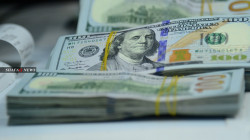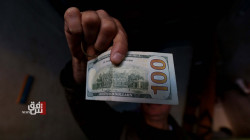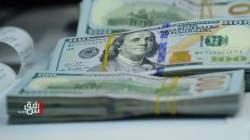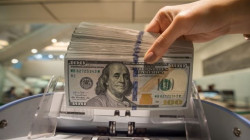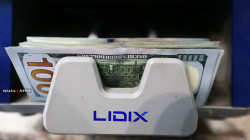Iraq's shift from dollar-denominated oil sales raises economic and political concerns
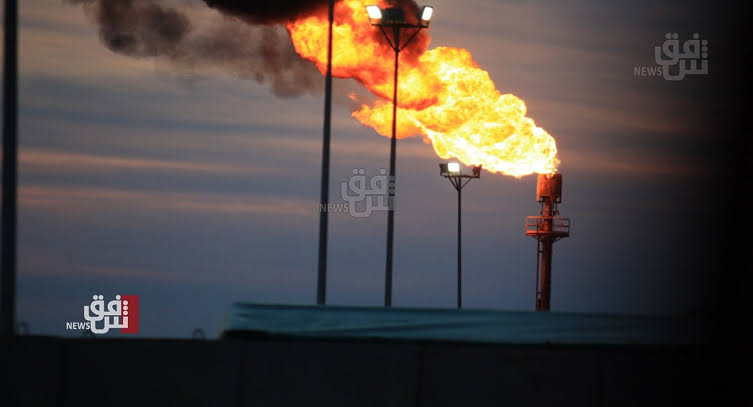
Shafaq News/ Iraq, a major player in the global oil market, is contemplating a bold move: abandoning its 20-year practice of selling oil exclusively in dollars.
Fueled by concerns over US sanctions and a desire for diversification, this decision has ignited a heated debate, raising hopes and fears for the nation's economic and political future.
Iraq's oil revenues are currently deposited in the American bank accounts of JP Morgan and Citibank, with payments received in dollars through the US Treasury Department.
The Iraqi Parliamentary Finance Committee has recently suggested a shift away from the "dominance of the dollar" to diversify the commission basket and counteract US sanctions on Iraqi banks.
The commission basket reflects Iraq's diversification of the currencies it accepts for oil sales beyond its current reliance on the US dollar.
The committee rejected what it deems "arbitrary decisions impacting citizens' livelihoods" and called on the government and the Central Bank of Iraq to swiftly diversify foreign currency reserves.
However, this proposed move is met with caution due to potential economic and political repercussions.
Economic expert Abdul Rahman Al-Sheikhli stressed to Shafaq News Agency the 2004 protocol signed between Iraq and the US binds Baghdad to sell its oil solely in dollars, noting that canceling this protocol would provide Iraq the flexibility to sell oil in different currencies, especially following recent agreements with the Federal Reserve to diversify the commission basket.
Bassem Al-Gharibawi, a Parliamentary Oil and Gas Committee member, acknowledged Iraq's right to sell its oil in any currency but recognized the need to liberate itself from existing restrictions, which may necessitate US approval.
In this regard, economic researcher Omar Al-Halbousi expressed concern over the potential economic consequences, describing the Finance Committee's proposal as a potential "suicide" for Iraq's economy.
In an interview with Shafaq News, Al-Halbousi warned of risks associated with deviating from the "petrodollar agreement," including potential "US embargoes, loss of immunity for Iraqi funds, and exclusion from global financial systems."
The petrodollar system, established through agreements with oil-producing nations, ensures that oil transactions are conducted in US dollars, reinforcing the currency's dominance in international trade.
The economic researcher viewed the situation as a "declaration of war on the global financial system led by the United States."
He deemed this form of economic challenge more dangerous than direct military targeting, emphasizing that the United States' strength lies in its influence over the global financial system, particularly through the petrodollar agreement.
On the other hand, Nabil Al-Marsoumi, another economic expert, cautioned against the proposed shift, highlighting the global significance of oil pricing in dollars. He warned of potential "violent American reactions, as abandoning the dollar is considered an American red line."
Al-Marsoumi explained that oil pricing in dollars "extends beyond standard crude oils such as Brent and West Texas Intermediate," this practice is "not solely tied to these crude oils but is a result of the extensive global oil trade." This trade involves exchanging a substantial volume of paper barrels, surpassing actual physical transactions. Significant speculative activity occurs on major stock exchanges, particularly the New York Stock Exchange and the London Stock Exchange.
The economic expert pointed out that the New York Stock Exchange handles approximately three billion contracts annually, with an average value of 1,000 trillion dollars, contributing to the dollar's dominance in oil pricing.
In addition, Al-Marsoumi said that the threat to the dollar's global position, which currently represents 60% of global monetary reserves, potentially undermines the economic importance of the United States at the worldwide level.
Before 2003, Iraq sold oil in various currencies, including the Iraqi dinar and the euro. However, sanctions and political instability disrupted these arrangements.
Following the 2003 US invasion, Washington and its allies established a provisional government that adopted the US dollar as the official currency for oil sales. This decision aimed to stabilize the war-torn economy and align with existing financial infrastructure.
Ultimately, as Iraq contemplates its oil sales currency, the nation balances on the precipice of a decision that will not only shape its economic future but could reverberate across the global financial stage.
The journey towards autonomy carries risks but is also laden with the promise of newfound economic freedom and resilience.
Iraq gains various advantages by considering a shift away from the petrodollar system. Firstly, such a move could reduce vulnerability to potential US sanctions, as reliance on the dollar exposes Iraq to geopolitical risks that may hinder access to the global financial system.
Secondly, economic diversification becomes possible by breaking away from exclusive dollar-denominated oil sales, allowing Iraq to explore new trade opportunities and benefit from fluctuations in different currencies.
Lastly, transitioning from the petrodollar system could give Iraq greater control over its oil revenue, offering increased autonomy and flexibility in managing its financial resources for strategic economic development.
However, these potential benefits have significant risks and uncertainties warrant careful consideration, therefore, the next steps will be crucial, and the world watches as diplomatic negotiations unfold, determining the feasibility and associated risks of this potential economic paradigm shift.
